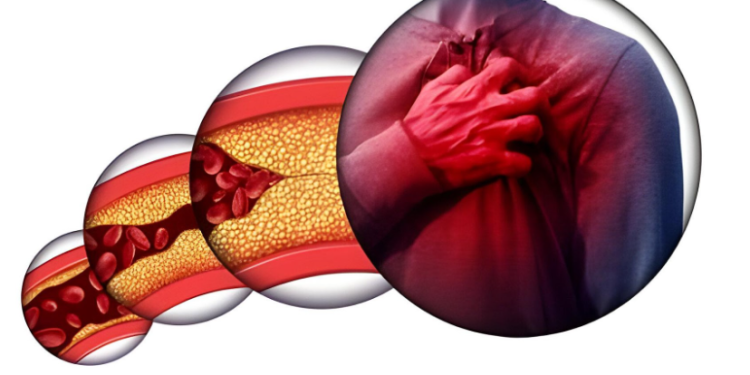Your heart, that resilient muscle pumping life through your veins, operates like a finely tuned orchestra. But just like any complex symphony, disruptions can occur. One such disruption is a heart block, a condition where the electrical signals controlling your heartbeat encounter obstacles, potentially disrupting its rhythm. Understanding the signs and symptoms of heart blocks is crucial for maintaining your cardiovascular health. In this comprehensive guide, we’ll get into the nuances of heart blocks, the various types, and the telltale signs to watch out for.
Want to stay on top of your heart health in this day and age? Visit a super-speciality hospital in Delhi today and get a comprehensive cardiac checkup done.
Types of Heart Blocks:
Before diving into the symptoms of heart blocks, let’s first understand the different types of heart blocks. There are three main categories: first-degree, second-degree, and third-degree (complete) heart blocks. Each type presents unique challenges and symptoms, requiring tailored management approaches.
First-degree heart block: This type involves a delay in the electrical signals travelling from the atria to the ventricles, resulting in a prolonged PR interval on an electrocardiogram (ECG). Symptoms may not be noticeable in this mildest form of heart block, but it can progress over time.
Second-degree heart block: In this type, not all electrical signals from the atria reach the ventricles, leading to missed heartbeats. Mobitz Type I (Wenckebach) and Mobitz Type II are the two subtypes, each with distinct characteristics and potential complications.
Third-degree (complete) heart block: Considered the most severe form, this blockage occurs when no electrical signals pass from the atria to the ventricles, causing a complete dissociation between the two chambers of the heart. Immediate medical intervention is typically required to regulate the heartbeat.
Now that we’ve outlined the types of heart blocks, let’s explore the symptoms of heart blocks associated with each type of blockage.
Symptoms of Heart Blocks:
Recognizing the signs of a heart block can be pivotal in seeking timely medical attention. Here are the key symptoms to watch for:
Irregular Heartbeat: A hallmark symptom of heart blocks is an irregular heartbeat, often described as a skipped beat or palpitations. This irregularity may be intermittent or persistent, depending on the severity of the blockage and its type.
Fatigue: Feeling excessively tired or fatigued, even after minimal exertion, can signal an underlying heart block. This fatigue stems from the heart’s inability to pump blood efficiently, leading to decreased oxygen delivery to the body’s tissues. It would be a good idea to visit a super-speciality hospital in Delhi to get such issues treated promptly.
Dizziness or Lightheadedness: Reduced blood flow to the brain due to impaired heart function can cause episodes of dizziness or lightheadedness. These sensations may worsen upon standing up or exerting oneself.
Fainting Spells: In severe cases of heart block, where there is a significant disruption in the heart’s electrical conduction, fainting or syncope may occur. This occurs due to a sudden drop in blood pressure caused by an irregular heartbeat.
Shortness of Breath: Difficulty breathing or shortness of breath, especially during physical activity or while lying flat, may indicate a compromised heart function. This symptom arises from the heart’s inability to pump an adequate amount of blood to meet the body’s oxygen demands.
Chest Pain or Discomfort: While not as common as other symptoms, chest pain or discomfort may occur in some individuals with heart blocks. This pain is typically not as severe or intense as that associated with a heart attack but should still be evaluated by a healthcare professional. If you are experiencing such discomfort as well, visit a super-speciality hospital in Delhi to get a diagnosis done.
Sudden Cardiac Arrest: In extreme cases of third-degree heart block, where there is a complete dissociation between the atria and ventricles, sudden cardiac arrest may occur. This life-threatening event requires immediate medical intervention, including cardiopulmonary resuscitation (CPR) and defibrillation.
Remedial Steps and Precautions:
While some risk factors for heart blocks, such as age and family history, are beyond our control, there are steps you can take to reduce your risk:
Maintain a Healthy Lifestyle: Adopting a balanced diet, engaging in regular exercise, and avoiding smoking can significantly lower your risk of heart disease, including heart blocks.
Regular Check-ups: Schedule routine medical check-ups to monitor your heart health and detect any abnormalities early. Visiting a super-speciality hospital in Delhi to get the necessary tests done would be a good idea.
Manage Chronic Conditions: Proper management of conditions such as hypertension, diabetes, and high cholesterol can help prevent complications that may lead to heart blocks.
Follow Treatment Plans: If diagnosed with a heart condition or related risk factors, adhere to your healthcare provider’s treatment plan and medication regimen diligently.
Conclusion:
Your heart’s rhythm is the symphony of life, orchestrating the flow of blood and oxygen to every corner of your body. But when disruptions occur, such as heart blocks, the melody falters, and your health may be at risk. By recognizing the key signs and symptoms of heart blocks, you empower yourself to take proactive steps towards cardiovascular wellness. If you experience any of the symptoms mentioned above, don’t hesitate to seek medical attention promptly. Your heart deserves the utmost care and attention, ensuring that its rhythm continues to beat in harmony with life itself.








































